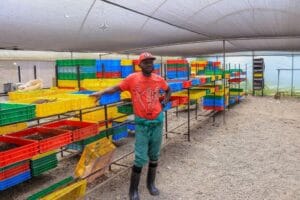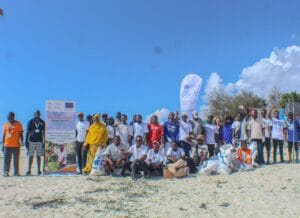
The context
Only a slim majority (53%) of Kenyan citizens know about climate change, however of those who were aware they held strong beliefs that the situation is getting worse (83%) and that governments (74%) and citizens (59%) could do a lot more to address it - Afrobarometer Nov 2022. Despite the Government’s National Climate Change Action Plan and worsening climate and environmental events such as the recent droughts or the ongoing coastal erosion, engagement of communities in policy dialogues and climate change actions is limited both in the formulation of mitigation strategies and their implementation .This also represents missed opportunities as youth centred civil society has been effective in raising awareness, conducting advocacy and lobbying . Civil society organisations and community-based organisations, who could play an active role in facilitating awareness and access to policy dialogues face a number of their own challenges, including limited funding, unpredictable relations with local/national government and varying degrees of technical knowledge on the climate/environmental issues or the advocacy opportunities to engage.
Climate change, along with rapid urbanization, is creating new and intensifying existing challenges for nairobi’s terrestrial and aquatic ecosystems and air quality. While Isiolo county experiences a predominantly hot and dry climate year-round, the region has recently endured a severe drought, significantly impacting the livelihoods of the entire population. In Kwale County, there is a projected increase in temperature and the frequency of hot and dry days, particularly during the First Season (March to May). This trend is anticipated to result in shortened crop cycles, reducing farmers' productivity and exposing them to adverse conditions.
Our intervention
In order to address this situation, we have tailored an intervention centered on the civil society which foresees three main components:
- Enhance the capacity of civil society groups, including civil society organisations, community-based organisations and schools etc. by providing motivation and technical training on climate change mitigation, adaptation, and justice issues, as well as environmental protection, waste management, and advocacy techniques/policy influence.
- Empower local and traditional institutions to actively advocate for ecological protection through initiatives such as tree planting and environmental improvement campaigns.
- Enhance influence by supporting practical actions with locally and youth-led co-designed climate action research/case studies and utilize the findings to impact citizen action and government response.



